This was not a banner reading month for me. There were a couple of standouts, but as a whole this batch of books felt mediocre (especially after having read so many 5-star books at the start of the year). But just because these books did not all rate high for me does not mean they won’t be perfect for you. I’ll let the reviews do their job of helping you to determine whether or not these are books you will want to add to your own TBR.
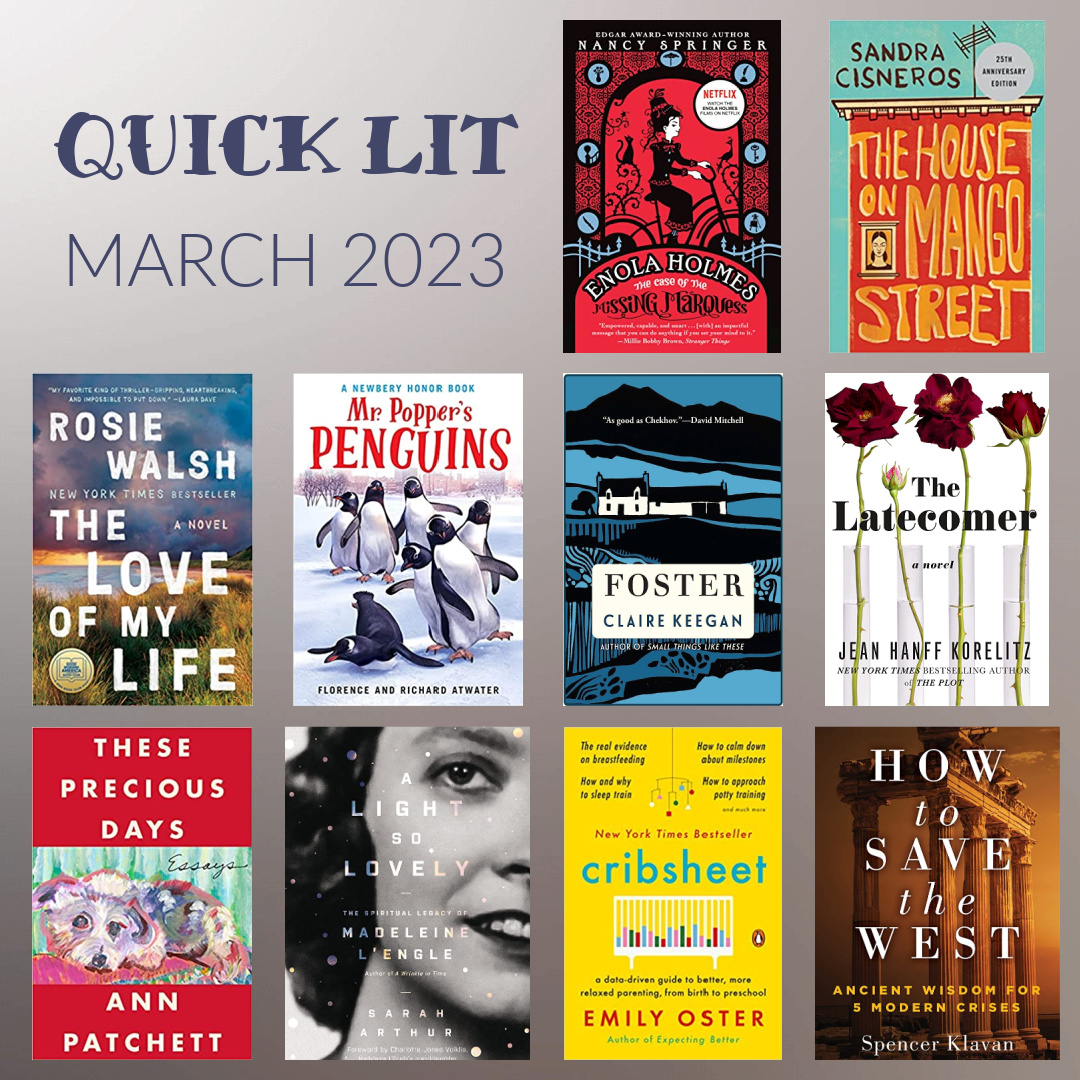
NONFICTION
A Light So Lovely: The Spiritual Legacy of Madeleine L’Engle, by Sarah Arthur: Unlike many of my fellow book lovers, I did not fall in love with A Wrinkle In Time as a child, and when I finally read it as an adult, I liked but didn’t love the science fiction tale; I was much more taken with Madeleine L’Engle’s memoir A Circle of Quiet that I devoured two years ago. I had no idea that L’Engle was such a complex woman, and I was intrigued to learn more about her through this biography that examines the author’s life, work, and legacy.
Madeleine L’Engle was a complicated individual: in her lifetime, her views were generally considered too progressive for conservative Christians and too Christian for the non-religious. She held definitive views of art and literature that rarely aligned with the ideas of her fellow authors, and her imagination was so vivid that she tended to merge fact with fiction in some problematic ways. In this book, Sarah Arthur takes a look at the paradoxes seen within the author who was an icon AND an iconoclast, an advocate for truth AND story, a writer of books that celebrated religion AND art and faith AND science. Arthur makes sense of these seeming incompatibilities for L’Engle and illuminates ways that her work can inspire fellow creatives and Christians seeking integration between various parts of ourselves and our work.
Arthur does an excellent job of painting an accurate portrait of this often controversial figure—celebrating her strengths without downplaying less commendable parts of the author’s story and her work. Arthur shows us ways that L’Engle can serve as a role model and a cautionary tale. My favorite portions of the book were those that focused on L’Engle’s ability to blend her faith into her writing in ways that highlighted the truth and celebrated story in ways that could appeal to audiences of all ages and beliefs. The discussion of L’Engle’s unfortunate tendency to prioritize story over fact was enlightening, if potentially difficult for many of L’Engle’s devotees who may prefer not to read about the the writer’s shortcomings.
This was a quick listen that gave me a lot to ponder about the nature of the books we read, the stories we tell, and the gurus we choose to follow.
My Rating: 4 Stars // Book Format: Audiobook
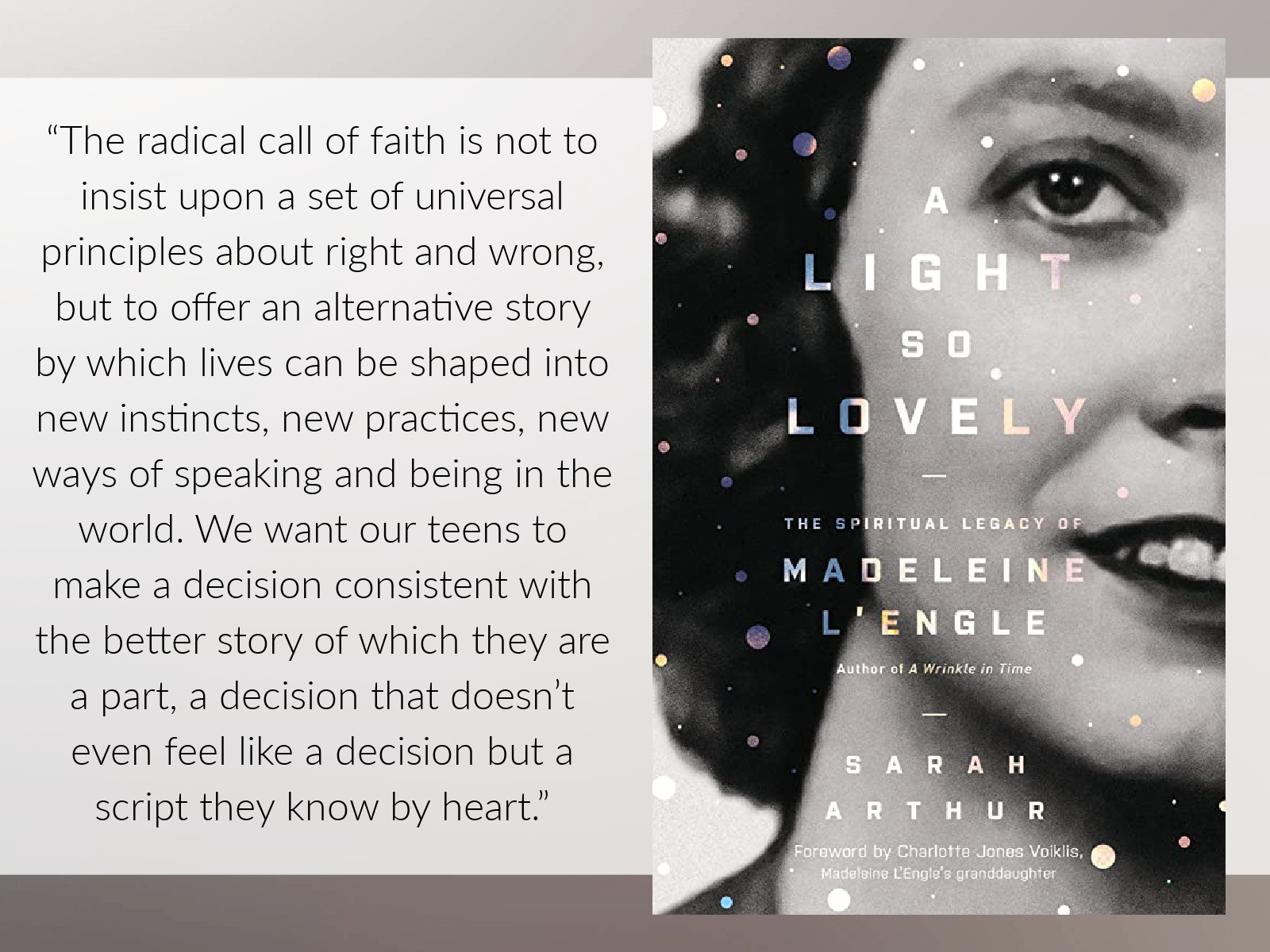
How to Save the West: Ancient Wisdom for 5 Modern Crises, by Spencer Klavan: Our world feels uniquely broken right now. It’s easy to assume that we’ve never been here before and that we have reached a point of no return. In this book, classicist Spencer Klavan (son of Andrew Klavan, whose podcast and books I enjoy) argues that the answer to our current cultural challenges can be found in the past—the distant past, in the form of classic works whose truths speak to contemporary issues in surprisingly prescient ways.
Klavan begins by identifying five existential crises that we are facing: a crisis of reality, a crisis of the body, a crisis of meaning, a crisis of religion, and a crisis of regime. In other words, we are a culture that disregards absolute truth and the need for religion, who has lost a sense of purpose and has disconnected from the physical aspects of our humanity, and who is questioning the form and function of governmental systems. Klavan addresses each of these concerns with insights from Plato, Aristotle, the Bible, and other classical wisdom sources, offering hope for a way forward through some well-trodden paths.
This is such a fascinating take on contemporary concerns. Spencer Klavan’s insights and applications are astounding, his ability to make sense of our problems and offer time-tested wisdom truly unique. Frankly, much of the book went over my head. These are not easy subjects to understand and Klavan’s discourse is at such a high level that at times I struggled to make sense of it. But as a whole, Klavan does an excellent job of narrowing down the main ideas for those of us less well-versed in his classical source material. I was encouraged by reminders of why our society is worthy of preserving and embracing, and hearted by Klavan’s ability to apply timeless truth to problems that can feel too new to have solutions. This is a Big Picture book with real-life implication; I am glad I listened, and it’s definitely worth a re-read in print in the near future.
My Rating: 4 Stars // Book Format: Audiobook
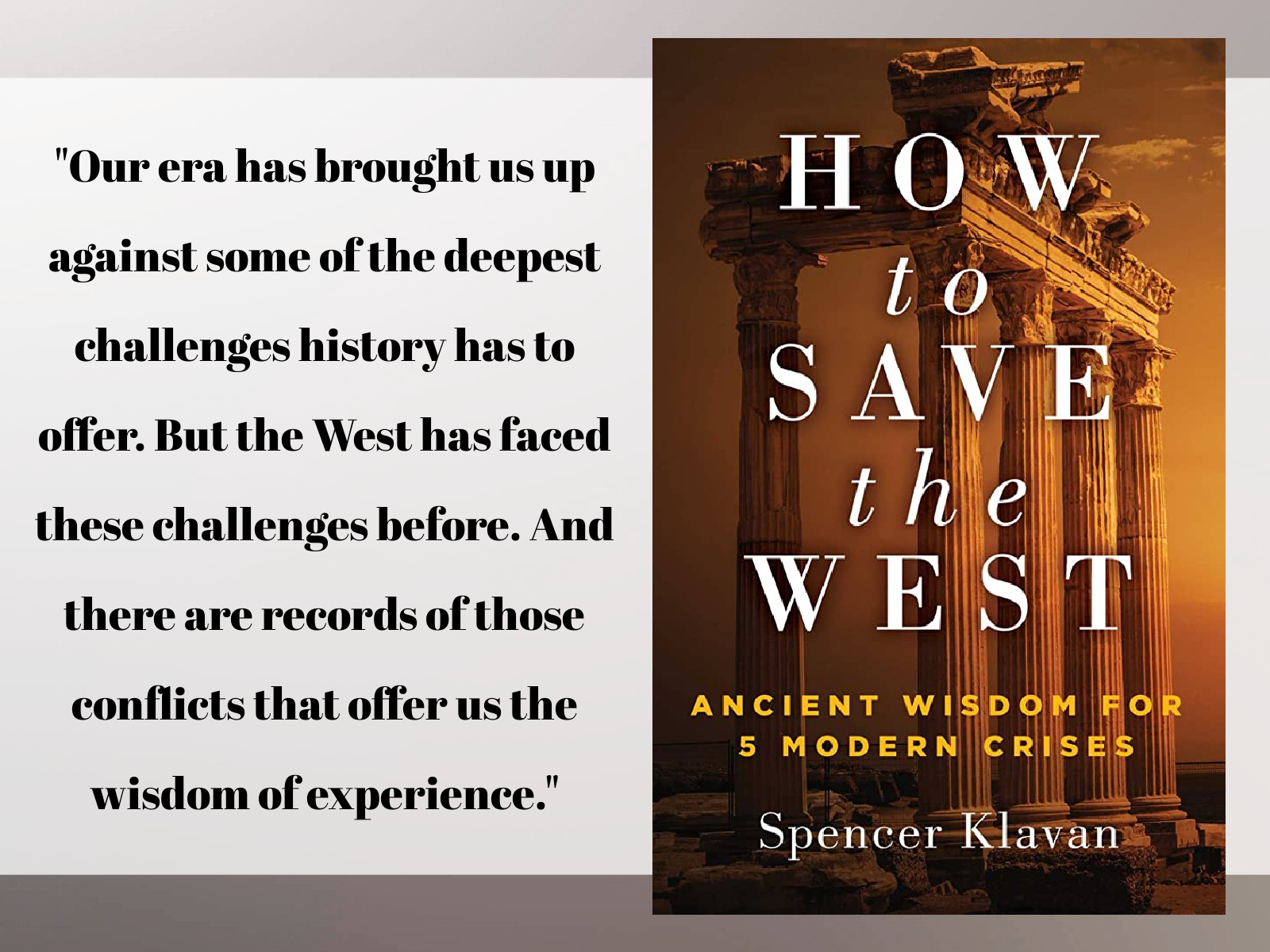
Cribsheet: A Data-Driven Guide to Better, More Relaxed Parenting, from Birth to Preschool, by Emily Oster: I often think about what parenting must have been like for previous generations. In some ways I’m sure it was much more difficult, but I imagine it was simpler—logistically, and also in terms of knowing “what to do” and how to do it, as parents simply replicated the ways they were parented (which was probably how their grandparents and great-grandparents had parented). Today we have access to many more ideas for how to do everything from feeding to helping our children sleep to determining if and when and where they should go to school. Endless options are touted by experts and supported by “the evidence,” but this evidence is frustratingly contradictory and inconclusive. We can find books and articles on nearly every side of an issue, and it’s hard to know which experts to trust.
This is where Emily Oster comes in. As an economist (also married to an economist and the daughter of—you guessed it—two economists), Oster specializes in examining numerical evidence and using her findings to inform her decisions. In Cribsheet (a followup to her first book about pregnancy), Oster applies this skill to many hot-button, hard-to-understand aspects of birth, infancy, and the toddler years. From hospital interventions and accommodations, to feeding modes, sleep schedules, toddler discipline methods, and more, Oster looks at all sides of a parenting topic, expounding upon the studies cited by experts to support their varying recommendations and helping parents make decisions informed by actual science.
Spoiler alert: there is a dearth of hard science to support many expert recommendations related to parenting. In looking into specific studies we see numerous flaws (small sample sizes, failure to account for variables, improper interpretation, etc.). Even some issues on which most experts seem to agree (such as the inherent superiority of breastfeeding over formula) are not as straightforward as parents are led to believe.
For parents seeking advice and clear answers, this book won’t provide them; you’ll get suggestions for which factors to consider when making decisions for your family, but Oster offers few definitive recommendations. But for a parent like me who is mostly through the earliest years of parenting (and merely read this book out of curiosity), Cribsheet may offer a sense of relief in seeing your decisions validated. The book also goes a long way to diffuse the mommy wars in that it recognizes advantages in a range of parenting choices: Oster helps parents see that there are few one-size-fits-all strategies where parenting is concerned.
Oster does have her biases, and she is careful to acknowledge these where applicable (for instance, she is firmly against the use of spanking as a disciplinary tool and does not give any page space to potential benefits of spanking). But while she openly shares the choices she and her husband made with their own two children, she remains fair and respectful of differing choices. Because she is not a medical or parenting expert, she is able to give a less-invested “outsider’s” look at the issues, which lends credibility and relatability to her observations.
One aspect of this book that did not sit well with me was the author’s tendency to define “best” in ways I disagree with. For instance, she points to academic success as an indicator of whether or not mothers should work or stay home with their children; and when comparing breastfeeding with formula feeding, she emphasizes nutritional quality over all other factors—these are just a couple of many such scenarios within the book. I can understand the need to focus on these outcomes that are easy to monitor, but they do not account for other factors (such as parent/child bonding in nursing, or emotional impact of having a working vs at-home mother). I wish that the author had more fully acknowledged the limitations of using statistical analysis to inform parenting choices.
It can be frustrating to see how little we actually know about parenting best practices, especially when we have been led to believe that issues like breastfeeding or potty training are clearcut. While I wish we had more data, it’s also beneficial to know that parental intuition may be our best resource when it comes to making decisions for our kids. There’s nothing wrong with turning to the “experts” for advice, but in most instances we can choose to disregard those experts without fearing that we are forever ruining our children.
Though more personal and a slightly more engaging read, Cribsheet reminded me a lot of Nurtureshock in that it disproved a lot of conventionally held wisdom, exposed myths, and shed light on falsely drawn conclusions. This book will appeal to statistics-minded parents and it will ease the concerns of many. It may also leave some parents more frustrated and confused than ever, but for all readers (including myself), it offers a healthy counterpoint to formulaic advice and inflexible parenting gurus insistent upon the strategies they are selling.
Bottom line: take it ALL with a grain of salt—including this book.
My Rating: 3.75 Stars // Book Format: Audiobook
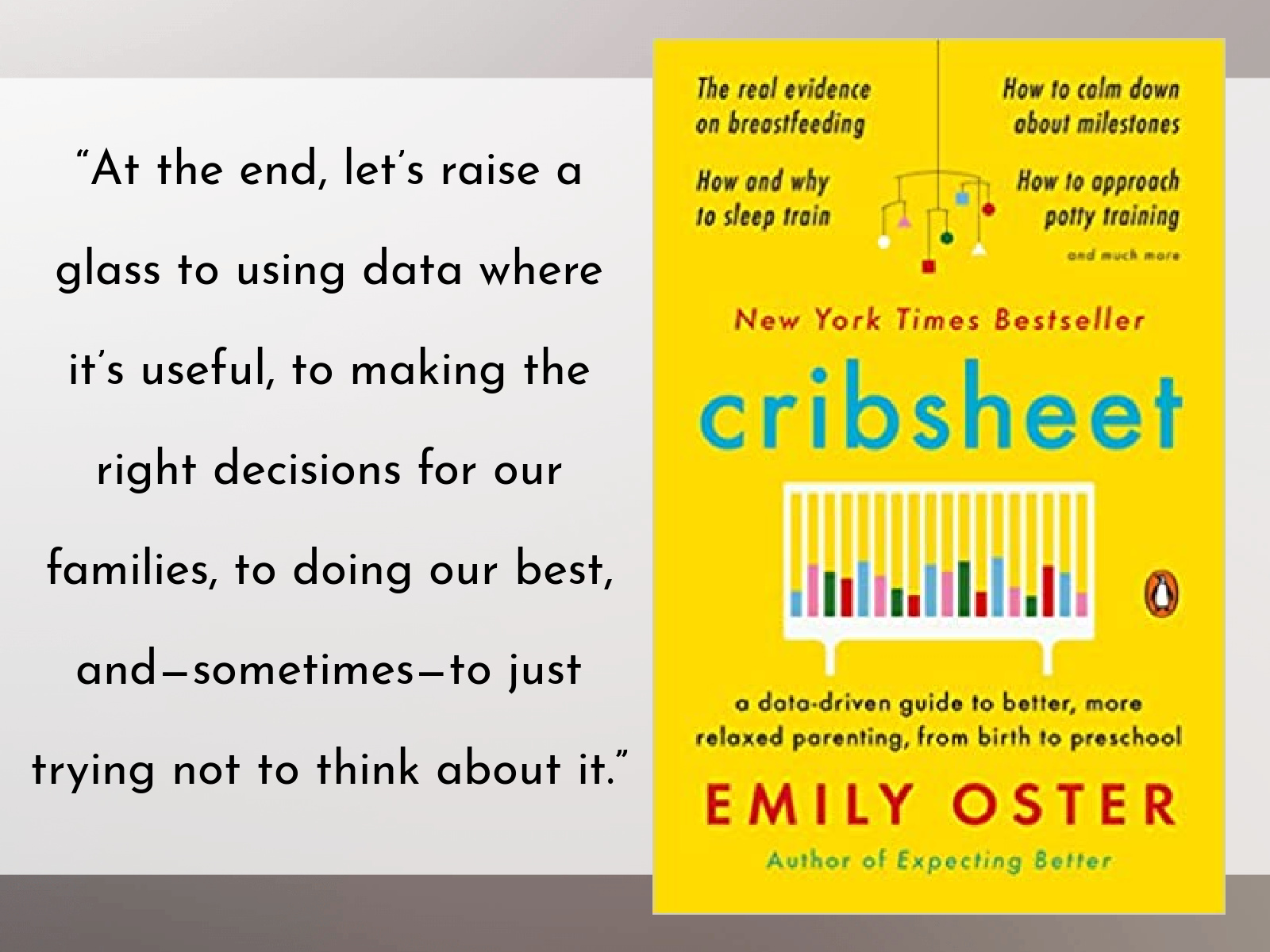
These Precious Days, by Ann Patchett: What a delightful and insightful essay collection this is! Patchett, who is best known as a novelist, is a brilliant observer of humanity—her own, and others. I love the publisher’s description, so rather than recap the collection myself, I’ll quote it here: “A literary alchemist, Patchett plumbs the depths of her experiences to create gold: engaging and moving pieces that are both self-portrait and landscape, each vibrant with emotion and rich in insight. Turning her writer’s eye on her own experiences, she transforms the private into the universal, providing us all a way to look at our own worlds anew, and reminds how fleeting and enigmatic life can be.”
Patchett’s essays range in subject, extending back to her childhood and earliest days as a writer and carrying us into her present experiences during the COVID lockdown and as owner of a popular Nashville bookstore. She expounds upon her literary influences (who would have guessed that Charles Schultz’s Snoopy is one of her greatest inspirations?), the writing process (from finding her stories to selecting book covers), developing her craft, and the connections she’s made with readers and other authors.
This is more than a writer’s book on writing (though it is very much that): it is also a powerful meditation on friendship, with beautiful tributes to her childhood best friend and, in the collection’s titular essay, her unexpected connection with Tom Hanks’ assistant (whom she grew close with when Hanks narrated Patchett’s book The Dutch House). Surrounding these stories are reflections on childhood (hers was not easy) and adulthood (including her very intentional decision to remain childless), marriage, hobbies, and learning to appreciate the big and small things in life.
Patchett’s writing is reflective and warm, walking the fine line between sentimental and pragmatic; I love her voice, her stories, and her wisdom. The audiobook is read by Patchett herself and I enjoyed listening to this, though I was glad to have a Kindle copy on hand as well so that I could highlight and savor some of the most poignant passages.
My Rating: 4.5 Stars (Rounded to 4 Stars on Goodreads) // Book Format: Audiobook
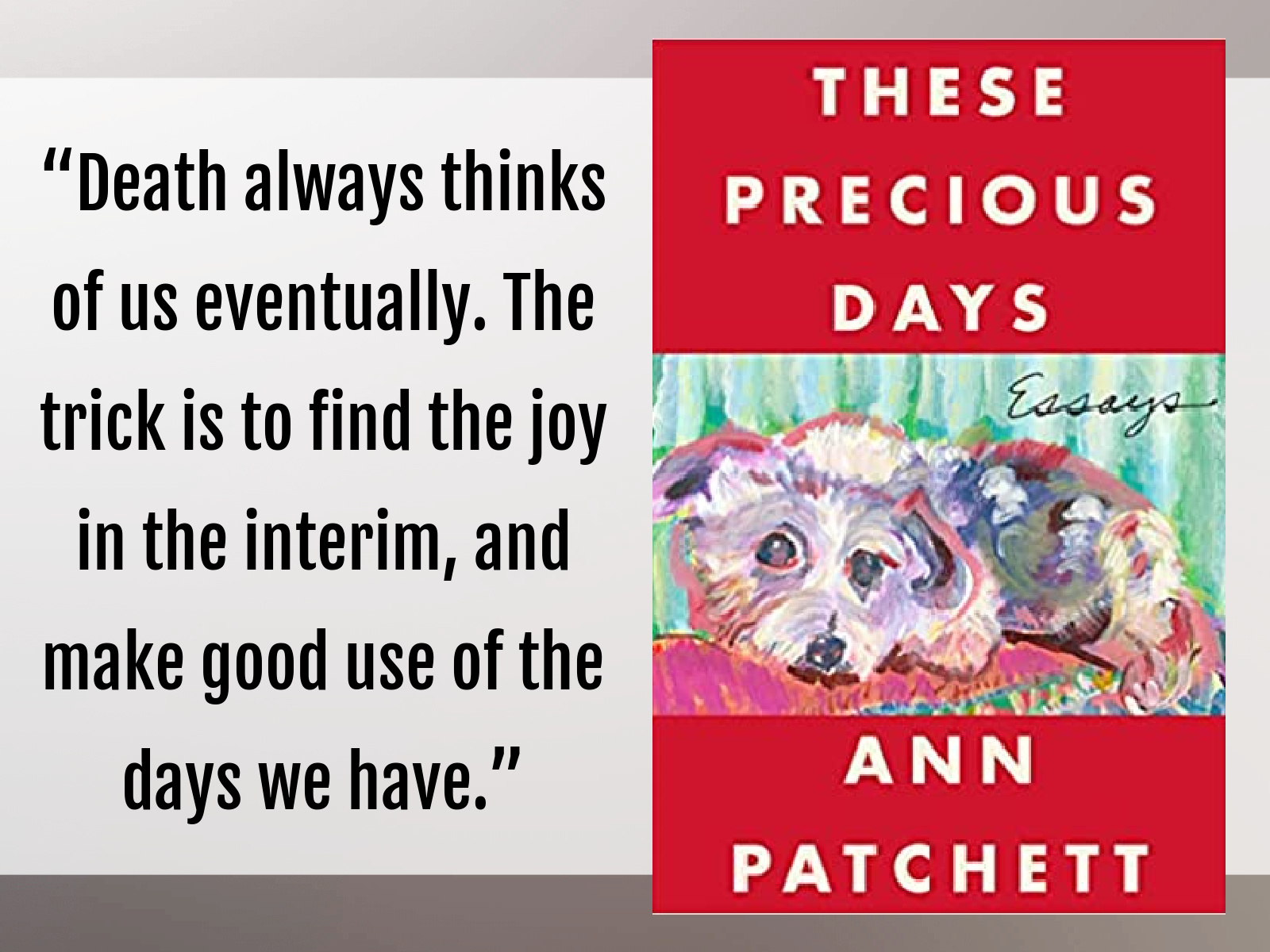
MIDDLE GRADE & YA
Mr. Popper’s Penguins, by Florence and Richard Atwater: Mr. Popper is a house painter living in Stillwater, Minnesota, in the 1930s with his wife and two young children. Mr. Popper has always been a dreamer and is especially interested in polar exploration. When a famous Arctic explorer sends Mr. Popper an unexpected gift of a live penguin, the Poppers embark on an adventure of their own that grows more and more cumbersome when “Captain Cook” the penguin acquires a mate and they go on produce ten baby penguins. From a home that is transformed into an icebox, to invitations to perform around the country, and a surprise run-in with the law, the Poppers are in for quite a wild ride!
I read this book years ago with a group of students, and I was excited to revisit it with Charleston. Though written nearly a century ago, it’s a sweet story that continues to hold great appeal. It’s less “meaty” than many of the books we’ve read together, but we enjoyed laughing over the Poppers’ antics, and imagining what it might be like to become penguin owners ourselves. There are some fun slapstick scenes that Charleston just adored, and while I found the ending a bit alarming (due to its seeming dismissal of the importance of family life), it’s a wholesome story that deserves its spot among children’s classics enjoyed by many generations.
Book Rating: 4 Stars // Book Format: Print // Charleston’s Rating: 5 Stars
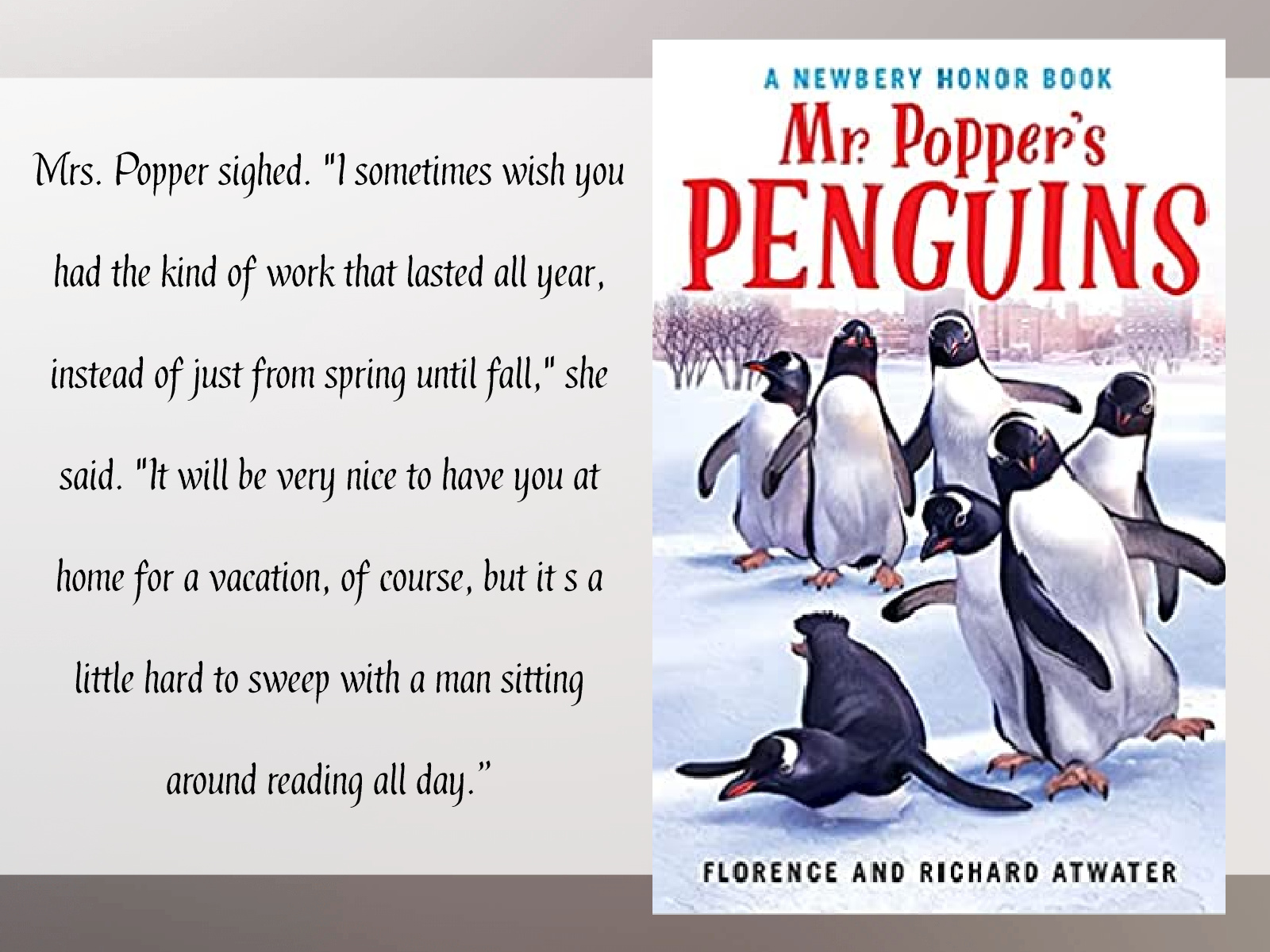
The House on Mango Street, by Sandra Cisneros: This is a classic that has been on my radar for as long as I can remember, and I’m not sure how or why I never got around to reading it, given its suitability for any number of reading challenges (a book published the year I was born [1984], a classic I’d been meaning to read, a collection of short stories/poems, an #ownvoices novel, etc.). Structured as a series of vignettes, The House on Mango Street is the story of Esperanza Cordero, a 12-year-old girl living in the Hispanic quarter of Chicago. In writing that is alternately whimsical and spare, we follow Esperanza through one year of her life living with her parents and three siblings in a modest home within an impoverished community. We catch glimpses of her neighbors and friends, all in some way struggling to survive. This is the story of a young girl making sense of the harshness and occasional beauty of the world she is growing up in—a world where abuse is commonplace, dreams are nearly futile, and childhood inevitably comes to an abrupt and often violent ending.
I was not prepared for the harsh themes present in Espereranza’s traumatic story. These are told matter-of-factly but not graphically, making them a little easier to stomach but no less shocking. I can see why this book is sometimes seen as controversial, definitely not suitable for readers on the younger spectrum of the YA demographic.
My overall impression of the books is that it is quite well done, offering a powerful glimpse into Mexican-American culture, the immigrant experience, womanhood, and early adolescence. The vignettes read like poetry and are best read slowly, and I appreciated the many layers of meaning. It’s the type of book I would love to dissect within the context of a literary book club or English class.
It is not an enjoyable read, but I understand its importance within the genres of Young Adult and Chicano Literature. I’m glad I can now say that I’ve read it, but it certainly wasn’t a favorite.
My Rating: 3 Stars // Book Format: Print
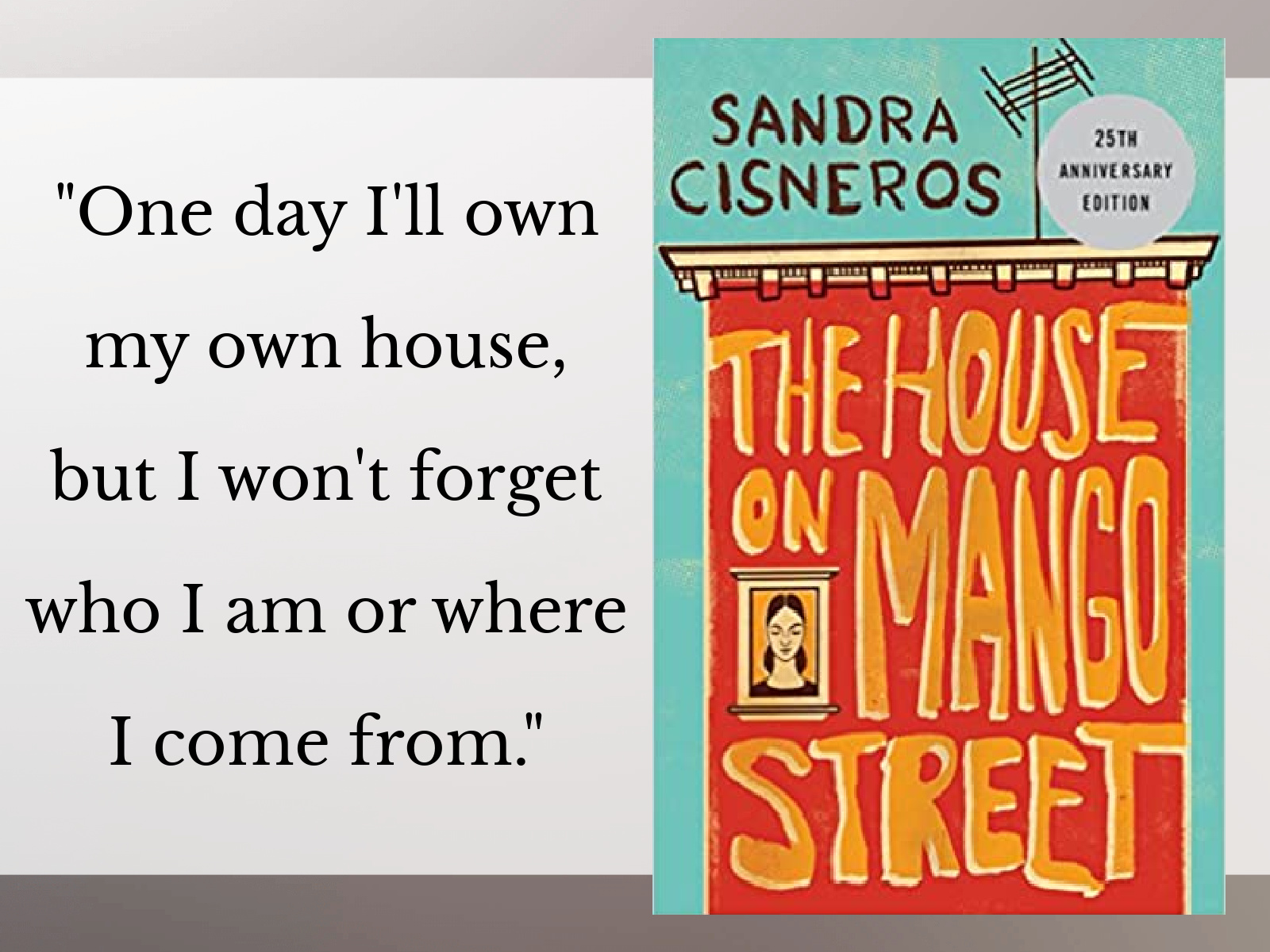
Enola Holmes: The Case of the Missing Marquess, by Nancy Springer: This book made its way into my reading queue in the manner that countless parents and teachers intend for our young readers: I first read the graphic novel and was then inspired to pick up that book’s “source material.” I was interested to notice differences between the formats and was surprised by how few there were: the graphic novel follows this original book almost exactly. It’s the story of Enola Holmes, the famed detective’s 14-year-old sister, whose mother has disappeared. Enola’s brothers intend to ship her off to boarding school, so the young amateur sleuth disguises herself as a grieving widow and flees to London where she investigates the case of a missing boy, while continuing to elude her brothers and determine her mother’s whereabouts.
This was a fast, fun read with an upbeat tone and an intriguing protagonist. I did not enjoy this as much as the graphic novel which added a little more whimsy and intrigue (thanks to the codes and ciphers in the illustrated books), but am glad to be able to compare the two (and know that if I choose to continue with the series I will do so through the graphic novels exclusively). I wanted more from this story and character, but still found this to be a very enjoyable read.
As with the graphic novels, this is marketed as a middle grade book but I feel it is more appropriate for readers on the older end of that demographic or possibly young teens due to slightly more challenging themes (such as maturing bodies, references to prostitution, and a feminist perspective on women’s attire [especially corsets]). For those who have seen the movies and read the books: how did they compare?
My Rating: 4 Stars // Book Format: Audiobook
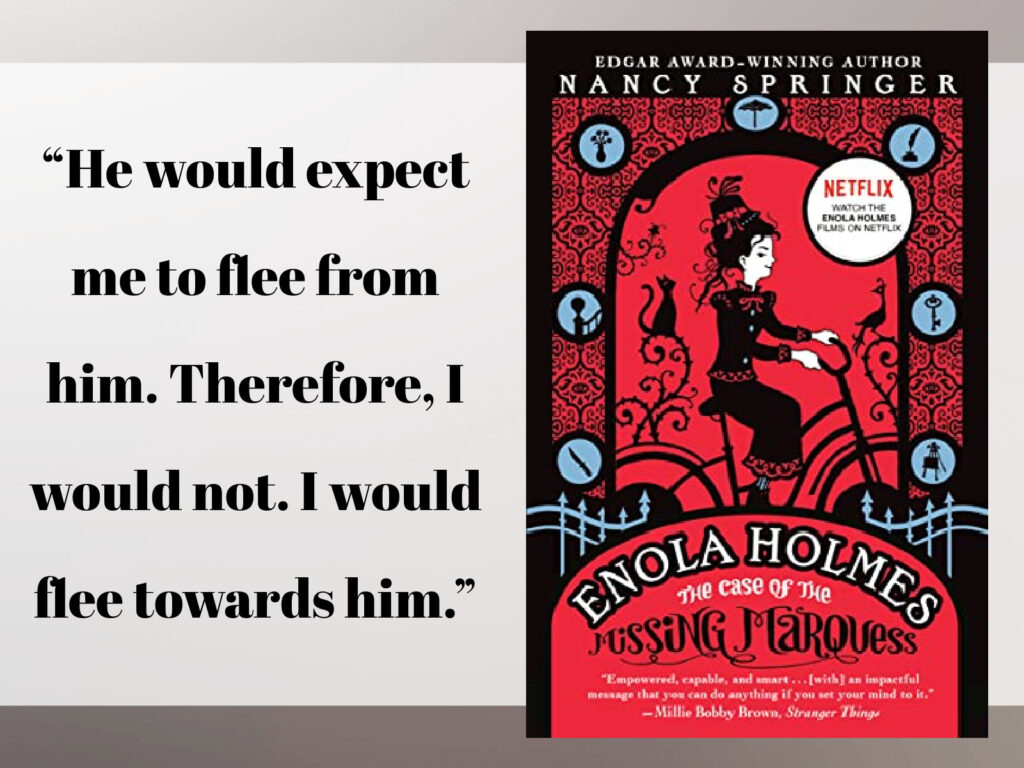
FICTION
Foster, by Claire Keegan: On a hot summer day in rural Ireland, an impoverished Catholic farmer drives his young daughter (our unnamed narrator) to the coast where he leaves her with distant relatives. She will live under their care for the summer as a kindness to the girl’s parents, who are overwhelmed with too many children and not enough resources or self-restraint. The child immediately senses something different in this quiet, comfortable home. There is no harshness or cruelty here; in place of the neglect to which she is accustomed, she is met with tenderness and nurturing. Over the summer she blossoms, and she in turn brings healing and wholeness to a heartbroken couple who have so much love to offer.
Claire Keegan is brilliant. She has an uncanny ability to deliver a story in under a hundred pages that would require most authors many volumes to tell; it is a testament to her masterful economy of words and her profound insight into humanity. In Foster, Keegan poignantly showcases the richest emotions and breadth of human experiences through the eyes of a young girl, whose observations are at once naïve and deeply insightful. Her story is one of loss and heartache as a child struggling to accept and then embrace a goodness she has never known and, once found, is afraid to leave behind. And it is this goodness that I will remember from the story—a pervasive yet believable goodness that is rarely observed in real life, let alone fiction. I loved seeing this kindness that shines brightly with its backdrop of not-quite-good; it is a goodness that is real but hardly showy, that transforms all who encounter it—including the reading audience.
This story will break you apart. It will also mend your heart back together again. It left me with a better understanding of the type of mother and friend I hope to be, and a desire to recognize and help ease hardship of those around me. Foster is compassionate and immersive, a story that should be required reading for all humans.
My Rating: 5 Stars // Book Format: Kindle

The Latecomer, by Jean Hanff Korelitz: This generational saga tells the complicated story of the Oppenheimers, a wealthy Jewish family from New York City, beginning with the meeting of parents Salo and Johanna under less-than-optimal circumstances in the 1970s. Salo and Johanna go on to parent triplets, conceived during the early days of IVF. The children—accomplished Harrison, angsty Sally, and amiable Lewyn—are never close and grow more distant when they leave home for college.
While the triplets are undergoing their tumultuous first year away from home, Johanna fills the hole left by her graduated children with a fourth baby. This “latecomer”—born via surrogate a full eighteen years after the other three children whose embryos were created simultaneously—experiences a vastly different upbringing from her siblings. This uniqueness gives her perspective on the family’s fracturing and positions her as the last glimmer of hope for redemption in this train-wreck of a family.
This book was on my radar because I loved the author’s 2021 thriller (a book VERY different from this literary novel), but it was the intriguing premise and creative cover that really prompted my interest. I nearly quit this book numerous times (due more to length than actual content), and though I’m glad I saw the story through to the end, the book is almost as complicated to review as the family whose story it tells.
I’ll begin with what I liked: as a mom of twins, I’m always interested in stories of multiples, and I was intrigued by the triplets in this story—namely, their complete lack of sibling connection, as well as the ways that their experiences and genetics manifested differently in each child. I found the range of topics (art curation, educational theory, academia, religion) extremely interesting, with each subject matter thoroughly researched and realistically presented. The extended timeline and range of stories told was also very interesting to me, and though the book is primarily character-driven, it moves at a good pace with several delicious plot twists. Most of all, I was enamored with the narrative voice that is jaunty, sardonic, pleonastic, and a shade mysterious.
The biggest downside to this book is its length. I won’t say it is too long, as no one portion dragged and each section served the story well. But this is a story of extremely unlikable characters and I did not particularly enjoy spending such an extended amount of time with this family; I was pulled into their story, but I ended each chapter feeling more than a little grimy for having witnessed so much selfishness and unkindness. We are given some nice glimpses of decency, and there is redemption for several of our protagonists, but the predominant tone is not uplifting.
I was also very disappointed with the political turn this book takes. The author’s bias against religion (particularly Christianity and Mormonism) and conservative politics is heavy-handed, with all conservatives portrayed as narcissistic, mean-spirited, arrogant, and short-sighted. I found the political discussion intriguing but distasteful and wish the author had brought as much nuance into the political discourse as she does to other aspects of her characters and story.
If you are a fan of generational stories and don’t need your characters to be especially endearing, this book has a lot to recommend itself: it is smart, well-written, layered, and propulsive. But go in knowing your ideas about family, politics, education, and life trajectories may be challenged and that you will likely need to chase this one with something a little more feel-good.
My Rating: 3.75 Stars // Book Format: Kindle
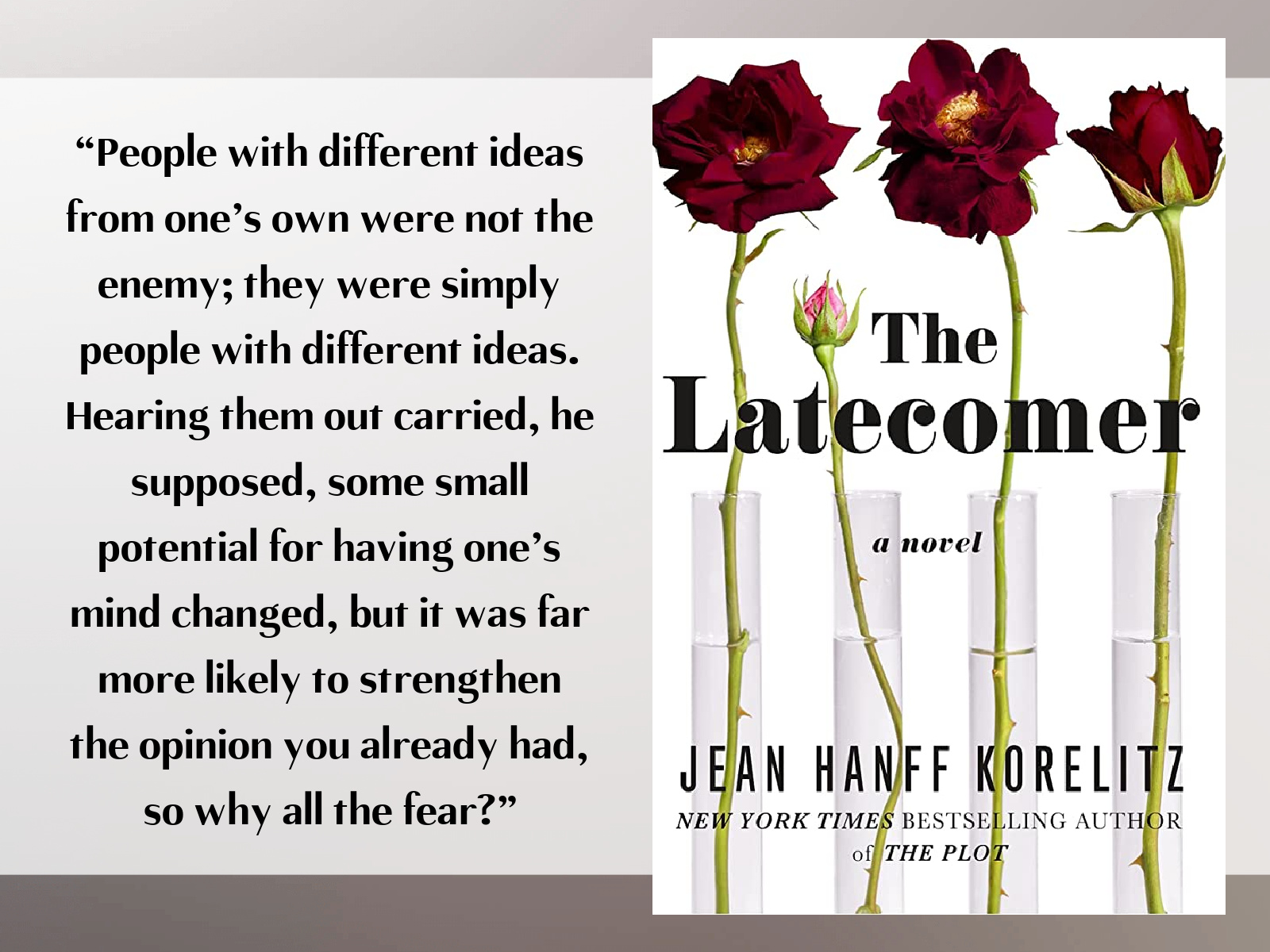
Love of My Life, by Rosie Walsh: Leo (an obituary writer) and Emma (a marine biologist and television personality) are deeply in love. Despite having weathered hardship in their ten years together—including infertility and Emma’s cancer—they are committed to each other and their 3-year-old daughter, Ruby. But Emma has been keeping secrets from Leo since their first meeting, secrets he accidentally uncovers while researching Emma’s life for her (hopefully-not-necessary) obituary. As Leo gets closer to the truth of Emma’s hidden past, she becomes more secretive and then disappears altogether.
The less you know about this novel (that is a mash-up of family drama, love story, thriller, and mystery) the better. I went in mostly blind, and appreciated the suspenseful turns as well as unexpected time hops and alternating narrators. The story is riveting, which kept me reading despite what I felt was amateur prose and a frustrating number of inconsistent storylines and weirdly placed red herrings. I liked this couple and wanted to know how everything would turn out for them, and I was invested in their past. But aspects of the novel felt manipulative (namely, the unreliable narrators and misleading story reveals): novels that center around spouses who refuse to share secrets without good reason are a pet peeve of mine, and that is true here. (We ARE given reasons for their deception, but they are flimsy at best.) I found the resolution anticlimactic given the build up, and was disappointed that several characters are ignored in the concluding chapters.
The book does have some great elements going for it: Leo’s career as an obituary writer is fascinating and I liked the way his career is embedded in the story, along with insights into this profession. (Contrastingly, Emma’s work in marine biology was less interesting to me and seemed like an afterthought.) Other strong points in the novel are the couple’s daughter, Ruby, who is spot-on (the author clearly has experience with 3-year-old girls!); the positive treatment of pregnancy (including unexpected pregnancy) and parenthood; and the celebration of marriage through more than one couple who go through a lot together and are determined to stick the relationship out. Themes I did not care for in the book are the discussion of mental illness (well done, but it hit too close to home for me) and addiction (alcoholism, hoarding, drug overdoses, and overeating are all mentioned but not given proper treatment).
This book gave me very strong Wrong Place Wrong Time vibes and I LOVED that book; this was just a mediocre read that I am hesitant to recommend.
My Rating: 3.5 Stars (Rounded down to 3 stars on Goodreads) // Book Format: Kindle
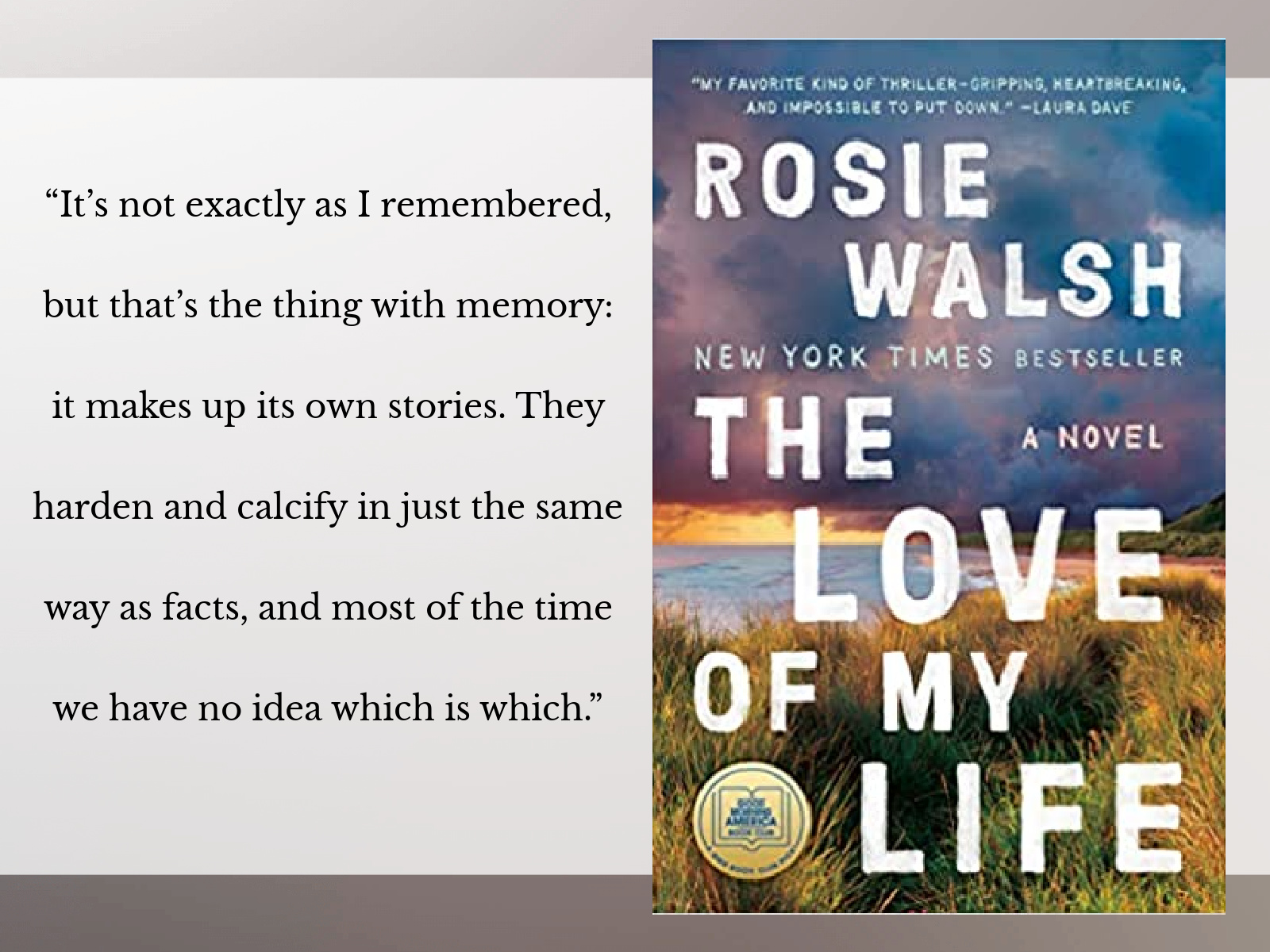
What have YOU been reading lately? I’d love to hear about it!
I also read and loved These Precious Days. I taught The House on Mango Street a few years ago while long-term subbing and I had some kids who loved it and some who didn’t. I think it helped I had some Hispanic students in the class at the time.
I am glad to know that House on Mango Street was helpful for some students. That’s a helpful reminder for me—that I’m not always a target audience, and that what doesn’t work for me in a book might be perfect for someone else .
I was also surprised by Mango Street when I read it
I really feel this one has been misrepresented!